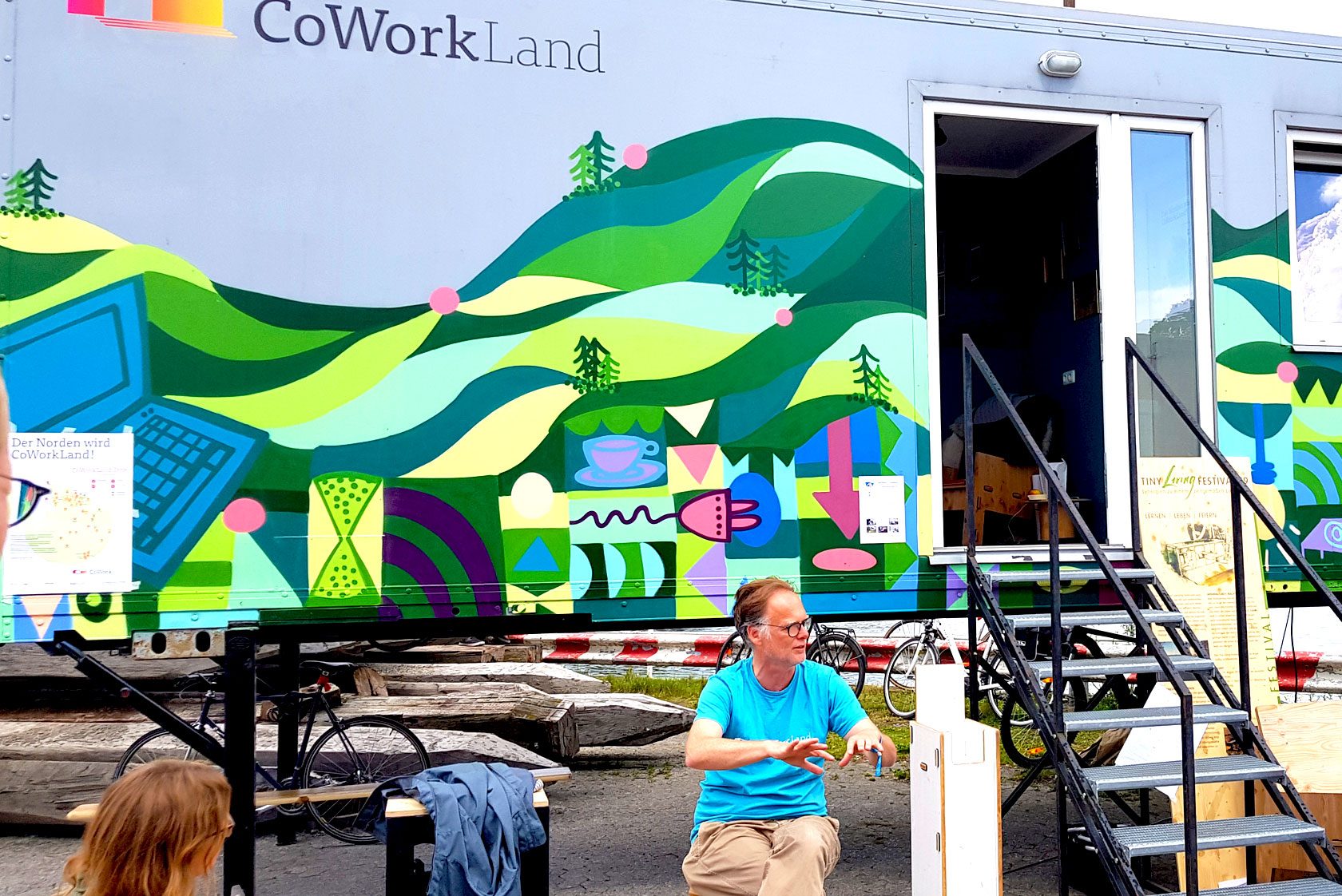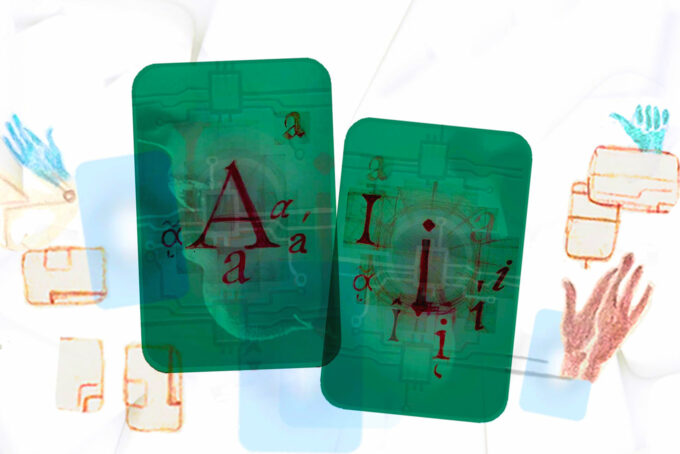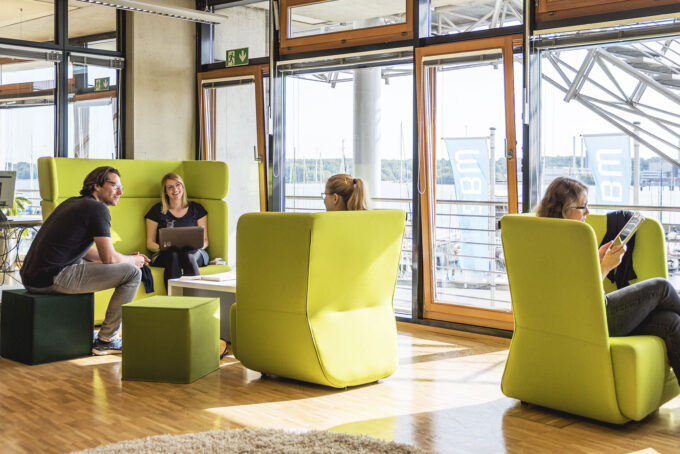
Waterkant Festival 2019: A Blueprint for a Lived Culture of Innovation
What does the library of the future look like? Can AI read? Are businesses really ready to support the Trojan horse of ‘innovation’? The Waterkant Festival 2019 provided a stimulating framework for learning new things and discussing future issues.
by Birgit Fingerle
The Waterkant Waterkant-Festival 2019 took place from the 13th to 14th June 2019 in Kiel. The international event was organised by Open Campus A range of lecture and workshop sessions, pitches and hands-on activities around new technologies, start-ups, new work and sustainability filled the programme which once again took place against a diverse backdrop and with a varied supporting programme. We have summarised some relevant sessions for our blog.
App for open politics
Lara Ingwersen and Pauline Dohse pitched Polit Me Polit Me, a forum for lively exchange between politicians and citizens.
Chatbot tour guide for museums
Ines Woerman introduced the chatbot automation platform “Hello Guide” , which can be used to easily set up chatbots.
🎙SPEAKER ANNOUNCE🎙say #hi to Ines Woermann from @helloguide_ai at #waterkant19! In her #workshop, Ines will get you in the #chatbot universe. Join us and get tix NOW👉🏽https://t.co/z2NtcHCcT6!
#tourguide #museum #digitalmuseum #helloguide #waterkant #kiel #MFG5 #ai pic.twitter.com/fUe2PcXA84— waterkant.festival (@waterkant_sh) 8. Mai 2019
There is a special focus on museums, with the ability to create a chatbot to act as a tour guide through exhibitions.
Setting up the library of the future
Dr Martin Lätzel and Berit Johannsen from the Schleswig-Holstein State Library presented plans for how the library should become a central meeting point and innovation hub in Kiel. With planning in the very early stages, they invited participants in the workshop part of the session to propose their own ideas for the future design. This third place is planned for spring/summer 2020.
Artificial Intelligence learns to read
The question as to whether artificial intelligence (AI) can learn to read was addressed by Robin Rojowiec from IBM. He explained the various approaches and how much they have developed in recent years.
@el_Robinio about machine reading comprehension @waterkant_sh #waterkant19 #ibm #machinereading #artificialintelligence pic.twitter.com/FXTZNEquDM
— Maike Havemann (@maikehavemann1) 14. Juni 2019
For instance, improved reading comprehension means that AI can now directly display the relevant part of a response text. The next step will be to apply it to videos using the speech-to-text function.
Hacker School – tackling the shortage of young talent
Julia Freudenberg introduced the Hacker School, which sees itself as a bridge between young people and companies that aims to address the shortage of young talent in computer science. The Hacker School has been offering sessions and courses in a steadily increasing number of cities since 2014. These allow children and young people to learn programming from company-based trainers.
Welcome to CoWorkLand
Ulrich Bähr from the Heinrich-Böll-Stiftung Schleswig-Holstein presented the initiative and cooperative CoWorkLand, which aims to promote coworking in rural areas.
#coworking auf dem Land? Grad hatten wir noch ein #NETZfeld– @MeetupDE zu dem Thema bei uns im Lab. Wie sowas in der Praxis aussehen kann, kann man bei den Kolleginnen und Kollegen von @coworkland auf dem @waterkant_sh begutachten. (sos) #waterkant #waterkant19 pic.twitter.com/AmUChNC65J
— HHLab (@HHLAB_de) 14. Juni 2019
The idea: over the next few years, coworking spaces will develop all over the north German countryside, thus allowing people to work together without having to drive to the city. The aim is to reduce car journeys, promote a better work-life balance and allow digitalisation to better reach rural areas. The initiative has been very successful: Having started in 2018 with a rural tour of mobile coworking spaces, there is now a rapidly increasing number of fixed coworking spaces in rural areas.
New work – or why innovation often remains a stranger
In the new work session “Can you really manage new work? This trojan horse that might challenge your core values!”, Daniela Marzavan summed up the problems of today’s working world in a nutshell: On one side are the managers who have ‘no time’ for innovation and are fully booked out with meetings for the next three weeks (meetingitis), all of which are taken up with ‘passing the monkey’. On the other side are the innovators, who remain strangers in the company system.
„We have to teach people to unlearn tools“, sagt Daniela Marzavan mit Blick auf die Trägheit manches Traditionsunternehmens in ihrem Workshop, der kurzerhand umgelegt wird. Und am Ende bitte jeder noch ein Brief an seinen Job. Tenor offen… (sos) #waterkant19 #waterkant pic.twitter.com/WGjOqUOliU
— HHLab (@HHLAB_de) 14. Juni 2019
From a corporate perspective, the question remains as to whether companies are really ready to support innovation. At the same time, we are often too impatient to change our behaviour. As this is very difficult, a lot of discipline is needed.
A culture of innovation needs psychological security
In their lecture entitled “It’s all about the mindset – how to foster an innovation culture”, Ina Rabouw and Lindsy Szilvasi from Studio Why provided food for thought on the topic of creating a culture of innovation.
#leadership has to create psychological safety – How to foster an #Innovation culture with Ina and Lindsy @StudioWHY_ #waterkant19 #Kiel pic.twitter.com/FdEA0FVZul
— Birgit Inken Fingerle (@klarkreativ) 14. Juni 2019
Without a suitable culture of innovation, there is little point in sending employees on a one-week training course about agile methods. Nothing will happen if there is no room for innovation and employees are not offered psychological security. Therefore, the support of top management is the first step.
Despite its size and openness, the Waterkant Festival once again offered a protected environment for learning, experimentation and innovation in 2019 – and could well serve as a blueprint for companies on their way to a culture of innovation.
Weiterführende Links:
- #Waterkant19
- Blogpost about Waterkant 2018
- Blogpost about Waterkant 2017
View Comments

Study “The University Landscape 2030”: Opening Up Through New Study Models
"Tamagotchi", "Jenga", "Lego" and "Transformer" are the names of the four new study...



